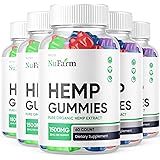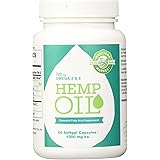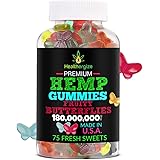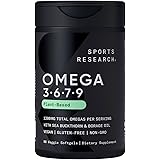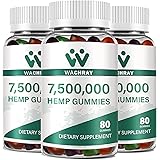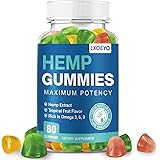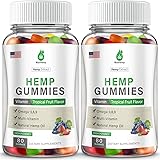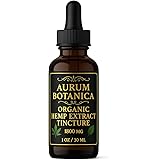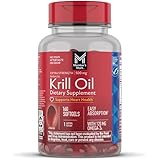Have you ever wondered if CBD oil for anxiety could truly offer a path to greater calm, or if it is merely another passing wellness trend? As explored in the video above, the world of natural remedies often brings forth questions of efficacy and genuine benefit, particularly when it comes to mental well-being. This article aims to delve deeper into the subject of CBD oil for anxiety, elaborating on its potential mechanisms, varied applications, and essential considerations for those seeking natural relief.
For many individuals navigating the complexities of chronic anxiety, the search for effective coping strategies is a persistent journey. Traditional medications, while beneficial for some, are often associated with concerns about dependence and side effects. This has led to a growing interest in alternative or complementary approaches, with CBD oil emerging as a prominent contender. The discussion surrounding CBD’s role in mental health recovery is a vital one, as relief from overwhelming anxiety can significantly improve daily life and overall quality of being.
Understanding CBD: A Natural Compound for Well-being
Cannabidiol, commonly known as CBD, is a natural compound that is derived from the cannabis plant. Unlike its more famous counterpart, tetrahydrocannabinol (THC), CBD is non-psychoactive; therefore, it is not possible to “get high” from it. This distinction is crucial, especially for those who are seeking therapeutic benefits without altered mental states. The CBD used in products typically contains less than 0.3% THC, which is the legal threshold established for hemp-derived products.
The journey of CBD into mainstream awareness is often traced back to a remarkable story that captured national attention in 2013. A young girl named Charlotte Figi, who resided in Colorado, suffered from a severe and rare form of epilepsy known as Dravet syndrome. She was experiencing an astonishing 300 grand mal seizures per week, a condition that was progressively debilitating and resistant to conventional treatments. In a desperate search for relief, her parents explored medical marijuana. A specific strain, later named Charlotte’s Web, was discovered to be very high in CBD and extremely low in THC. Upon administration, the results were transformative: Charlotte’s seizures dramatically reduced, offering a new beacon of hope not only for her but for countless others facing similar struggles. This pivotal case demonstrated the potent anti-seizure properties of CBD, laying the groundwork for further research and public interest.
How is CBD Administered? Exploring Diverse Forms
The versatility of CBD products allows for various methods of administration, catering to different preferences and needs. Initially, tinctures were a common form, where a few drops are placed under the tongue for sublingual absorption. However, the market has since expanded significantly, offering numerous options for incorporating CBD into one’s routine.
- Tinctures: Liquid extracts typically taken orally by dropping under the tongue.
- Pills and Capsules: Convenient, pre-dosed options for consistent intake.
- Edibles: Products like gummies, chocolates, and other infused foods offer a palatable way to consume CBD.
- Topicals: Creams, balms, and salves can be applied directly to the skin for localized relief from pain or inflammation.
- Vape Cartridges: Inhaling CBD vapor allows for rapid absorption into the bloodstream, offering quicker effects.
It is important to note that the concentration and quality of CBD can vary significantly across different products. Consequently, consumers are advised to conduct thorough research and select reputable brands that provide third-party lab testing results, ensuring purity and accurate CBD content.
Is CBD Oil Addictive? Separating Fact from Fiction
A common concern surrounding cannabis-derived products revolves around the potential for addiction. With pure CBD oil, specifically that derived from hemp and containing negligible THC, addictive properties are not typically observed. The non-psychoactive nature of CBD means it does not produce the “high” associated with marijuana, thus reducing the potential for recreational misuse and subsequent dependence. However, the presence of THC in some CBD products, particularly full-spectrum varieties or those marketed for specific effects, introduces a different dynamic.
Some formulations, especially those designed to maximize therapeutic benefits, may contain a small but notable amount of THC. For instance, a ratio often discussed in dispensaries is nine parts CBD to one part THC. This specific blend is thought to increase the overall efficacy of the CBD, a phenomenon sometimes referred to as the “entourage effect,” where cannabinoids and other plant compounds work synergistically. If such a product is consumed, especially in higher doses, mild psychoactive effects could be experienced, and a potential for dependence might be present, though typically far less pronounced than with high-THC cannabis. Understanding the exact cannabinoid profile and THC percentage of a product is therefore paramount for users to make informed decisions about their consumption.
Beyond Anxiety: A Spectrum of Potential Uses for CBD Oil
While the initial fame of CBD was largely due to its remarkable success in treating severe epilepsy, investigations into its therapeutic potential have expanded to encompass a wide array of conditions. The broad range of effects attributed to CBD suggests a multifaceted interaction with the body’s endocannabinoid system, a complex network involved in regulating various physiological processes.
CBD and Pain Management
Many individuals are reportedly finding relief from chronic pain and inflammation through the use of CBD oil. The compound is believed to interact with cannabinoid receptors in the brain and immune system, potentially altering pain perception and reducing inflammatory responses. Anecdotal evidence, supported by preliminary research, suggests that CBD could be a valuable complementary treatment for conditions ranging from arthritis to neuropathic pain. The anti-inflammatory properties of CBD are particularly interesting, as inflammation is a common underlying factor in many chronic pain states.
Addressing Psychosis and Addiction
Intriguingly, research is being conducted into CBD’s potential role in managing psychosis and aiding in addiction recovery. It is theorized that CBD may help modulate certain neural pathways, contributing to a more balanced mental state for those with psychotic disorders. Furthermore, the calming effects of CBD may assist individuals in breaking cycles of addiction to substances such as cigarettes, heroin, methamphetamine, and cocaine. By promoting relaxation and reducing the heightened anxiety often associated with withdrawal, CBD might offer a supportive tool in the arduous journey toward sobriety.
Supporting Sleep and General Well-being
The ability of CBD to induce a state of relaxation is also being explored for its benefits in sleep regulation. Many users report improved sleep quality, finding that CBD helps calm racing thoughts and reduces physical tension, thereby facilitating a quicker transition into sleep. This general sense of relaxation and reduced anxiety contributes significantly to overall mental and physical well-being, making CBD an appealing option for those seeking a holistic approach to health.
Exploring CBD Oil for Anxiety: Personal Accounts and Analogs
The connection between CBD oil and anxiety relief has garnered substantial attention, largely fueled by personal testimonials and a growing body of preliminary research. A compelling parallel can be drawn between CBD and certain anti-anxiety medications. Klonopin, a benzodiazepine, is known for its effectiveness in managing anxiety and also possesses anti-seizure properties. Given CBD’s established efficacy as an anti-seizure medication, as evidenced by the Charlotte Figi case, it logically follows that it might also offer relief from anxiety symptoms.
Personal experiences often underscore the perceived benefits of CBD for anxiety. One individual reported using CBD oil orally for approximately a year to mitigate anxiety stemming from life stressors and to improve sleep quality. A dropper full was taken at bedtime, and again if awakening too early in the morning. The reduction in anxiety was substantial, and an unexpected bonus was the lessening of joint pain, all without experiencing morning grogginess. This testimonial highlights not only the potential for anxiety relief but also the absence of common side effects associated with some traditional sedatives.
Another compelling account comes from a direct personal experience with CBD for anxiety. During a period of anxious rumination and rapid heart rate at 4 AM, typically a time for deep breathing exercises to regain calm, two drops of CBD oil were administered sublingually. Within approximately 10 minutes, a noticeable slowing of the heart rate was observed, followed by muscle relaxation and a return to sleep. This personal anecdote, while not scientific proof, provides a tangible example of CBD’s acute effects on anxiety symptoms and its potential to restore peaceful rest.
Further anecdotal evidence from pharmacy workers indicates that CBD oil has been adopted by some as a replacement for prescription anxiety medications like Xanax. Users have reported easier breathing, relaxed chest muscles, and improved sleep facilitated by deep breathing. Beyond anxiety, CBD has also been cited by customers as a means to alleviate the “brain zaps” often experienced when discontinuing antidepressants and to minimize withdrawal symptoms when reducing opiate use post-surgery. These observations, while needing rigorous scientific validation, collectively paint a picture of CBD as a versatile agent in supporting mental and physical transitions.
Important Considerations and Safety Precautions
While the potential benefits of CBD oil for anxiety and other conditions are promising, it is paramount to approach its use with informed caution. The information presented here, and in the accompanying video, is intended for educational purposes only and should not replace professional medical advice, diagnosis, or treatment from a qualified healthcare provider.
Before incorporating CBD oil into any health regimen, it is strongly recommended that a physician or prescriber be consulted. This consultation is crucial to ensure that CBD will not adversely interact with any existing medications or exacerbate underlying health conditions. Although interactions are generally considered to be minimal, some healthcare professionals advise staggering the intake of CBD and other medications by two to three hours to minimize any potential interference. Ultimately, the final authority on health decisions rests with one’s personal physician.
Furthermore, the market for CBD products is not uniformly regulated. Consequently, variations in product quality, potency, and purity can be significant. It is advisable to seek out brands that provide clear labeling of ingredients, dosages, and evidence of third-party lab testing. These measures help ensure that the product being consumed is safe, effective, and free from contaminants.


